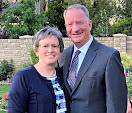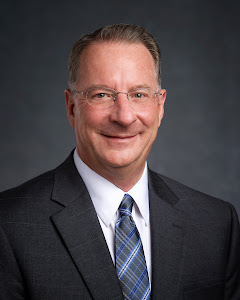“Yes, I’m done with school,” said a young bridegroom to me when I asked him about his educational status and future.
My response was spontaneous and swift: “Well, now the education really begins because learning is a lifelong process.”
I’m sure he wasn’t ready for me to say that. He was marrying a beautiful young woman who was finishing her baccalaureate degree, had a pretty good job as a chef, and figured his life couldn’t get any better. But I had to plant the seed because metaphorically I am an educational farmer and entrepreneur, one who sees the wide open stretches of fertile minds of people, young and old, employed and unemployed and figures everyone should be doing something to enhance his or her capacity to learn.
As I was driving home after the wedding, I couldn’t help but think about the 81-year-old GED graduate who haltingly crawled out of her wheelchair, grabbed her walker, and shuffled cautiously across the stage at a Lewis-Clark State College General Educational Development (GED) graduation to receive her GED certificate. Tears swelled up in my eyes as I watched her walk back to her wheelchair and sit back down. The crowd gave her a standing ovation.
I also thought about the 78-year-old GED graduate at Eastern Idaho Technical College (EITC) some years ago who said, “I am getting my GED because I know I will be a good example to my grandchildren.” Donned in traditional cap and gown, she, too, received a standing ovation as she walked across the stage and waved to her family.
Often, I also think of the 30 or so “more mature adults” who all trundled to Lewiston once during the month of June to participate in an Elderhostel activity. These adults came from across the country and are all over 50, many of them in their 60s, and will participate in a week-long course that will introduced them to Lewis and Clark and the Corps of Discovery. Many of the these Elderhostelers have been to one or more Elderhostel activities around the United States during the past year. Their education might have ended several decades ago, but their learning has never stopped. Instead, they seek opportunities to learn because, as one of them commented, “I love to learn.”
At the opening session when I heard this phrase at their opening dinner, I marveled at it, yet simultaneously wondered how we could instill this progressive, albeit simple, philosophy in young people in grade school or junior or senior high school. These young people’s repetitious phrase is diametrically opposed to the senior citizens’: “I can’t wait to get out of school. I’m so burned out.”
When I hear this phrase, I want to literally scream: “Don’t say that! Don’t quit the process now! Your foundation has already been laid. Courage, and on to the victory.” After I calm down, I find solace in the fact that they will go on. Many of them just need to experience the jolt of menial labor or no job at all to open their eyes to learning and the prospects of an enhanced life.
In speeches, I often used the Jaime Escalante’s phrase, “Free, free, free, knowledge; bring you own containers.” Life is all about that phrase. Knowledge oozes out of every corner and crack. Often it just seeps by us or hangs from luscious baskets within our reach, but often we do not take advantage of the proliferation of knowledge. Or we fail to pack around our own containers, our buckets. Or worse, just the bottoms of our buckets are covered, and we say “I’ve got all the knowledge I want.”
Sometimes our buckets are like the old wire baskets I used to pick potatoes (a.k.a. “spuds”) in Eastern Idaho. They did not fill up by themselves. In order to pick a sack full of hardy Russets, my partner—most of the time my brother—and I had to bend over our baskets and reach for the potatoes. After dumping our full baskets in the gunny sack, we set the sack in the furrow between us and began again. Then, the truck would come by and take the sack to the spud cellar where they stored them until they were ready to sell.
Our gathering of knowledge parallels spud picking. It takes a bit of effort to fill our buckets. We may have to bend our backs, stretch our minds, work midst wind and snow storms and tauntings of others, and maybe even make a few sacrifices. But in the end, it’s all worth it. Like spuds in the cellar, knowledge stores easily in our minds until we need to use it. But we also need to couple it with everyday experiences so we can make the appropriate connections.
Learning is an investment, one that yields high benefits and interest. Because of the many changes in the world and the workplace, you may need to withdraw these resources at any given time. Invest now and often and keep your bank account growing.
Monday, April 20, 2009
Lifelong Learning
Subscribe to:
Post Comments (Atom)










3 comments:
Love the article dad. Keep them up!
you are such a hunk! Also a fantastic writer. love you
I love the stories about the older women. I think I would have bawled my eyes out. What an accomplishment.
Post a Comment